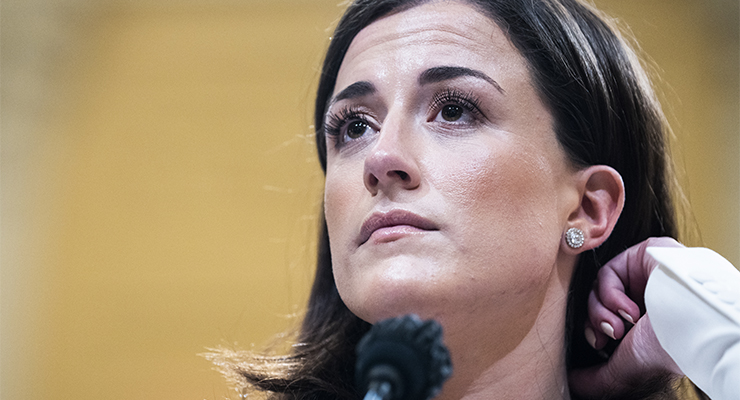
When it comes to the ability of the system to hold Donald Trump accountable for lawlessness before, during and after his presidency, it’s been one disappointment after another.
First, his lawyer Michael Cohen goes to federal prison for paying Stormy Daniels and another of Trump’s sex partners to keep quiet in the lead-up to the 2016 presidential poll. Yet the case against the then president — who was referred to throughout Cohen’s proceedings as an unindicted co-conspirator — was dropped because a sitting president can’t be indicted.
In 2021, Trump’s justices at the Supreme Court (his way of referring to them, not mine) dismissed two emoluments or foreign bribery suits as moot because — wait for it — Trump was no longer president. Even the tax evasion scheme that led both the Trump organisation and its CFO to be charged has not touched Trump, and the bank and tax fraud investigation against him was abruptly discontinued in March when a new district attorney expressed doubt that the numerous felony violations could be proved beyond a reasonable doubt.
At the heart of these problems is Trump’s state of mind, an essential element to proving a crime.
During the Watergate hearings this question was phrased as: “What did the president know, and when did he know it?” But discerning Trump’s comprehension of and culpability for his conspiracies is more complicated. Not just because he’s refusing to testify to the committee, but because he talks like a mobster and doesn’t use email or text. Not to mention a personality disorder that seems to impede his grip on reality wherever his ego is concerned.
Which is where Cassidy Hutchinson, the surprise witness for yesterday’s unexpected presentation from the January 6 committee, comes in.
Because Hutchinson was senior aide to the chief of staff Mark Meadows, she was up close and personal with the president and the senior staff around him in the lead-up to January 6 and on the day. In the absence of other witnesses such as White House counsel Pat Cipollone coming forward, her testimony — and footage from a documentary filmmaker who interviewed and followed Trump around in the six weeks before the riot — is critical to shed light on Trump’s comprehension, purpose and state of mind in the lead-up and on the day.
But why the urgency? Deputy chair of the committee Republican Liz Cheney offered a clue.
“Our committee commonly asks witnesses … whether they’ve been contacted by any of their former colleagues or anyone else who attempted to influence or impact their testimony … This is a call received by one of our witnesses: ‘A person let me know you have your deposition tomorrow. He wants me to let you know he’s thinking about you. He knows you’re loyal and you’re going to do the right thing when you go in for your deposition.’ “
Was this indirect threat from Trump towards Hutchinson? We don’t know, although the devastating impact of her testimony for him and Meadows was clear as she related attempt after attempt to get the president to recognise and do something about the coming threat to no avail.
Most chilling was her recounting of Trump’s response, which he gave more than once, to what he was repeatedly being told was the heavily armed nature of the rioters he was planning to unleash on congressional members and staff.
“I was in the vicinity of a conversation where I overheard the president say something to the effect of, ‘You know, I — I don’t fucking care that they have weapons. They’re not here to hurt me … They can march to the Capitol from here’.”
The take-home of yesterday’s hearing is clear. Trump didn’t call off the white supremacist leaders of the mob when they led a chant about hanging his vice-president because, according to another conversation overheard by Hutchinson, he thought “Mike deserves it” and he didn’t think the mob was “doing anything wrong”.
Trump didn’t act to calm or turn away the rioters because for him the violence at the Capitol that day was a feature, not a bug.
In the face of Pence’s refusal to use the certification process to throw the presidency Trump’s way, it was Trump’s last-ditch attempt to stop the certification process that would confirm Joe Biden as the next president of the United States.








Crikey is committed to hosting lively discussions. Help us keep the conversation useful, interesting and welcoming. We aim to publish comments quickly in the interest of promoting robust conversation, but we’re a small team and we deploy filters to protect against legal risk. Occasionally your comment may be held up while we review, but we’re working as fast as we can to keep the conversation rolling.
The Crikey comment section is members-only content. Please subscribe to leave a comment.
The Crikey comment section is members-only content. Please login to leave a comment.